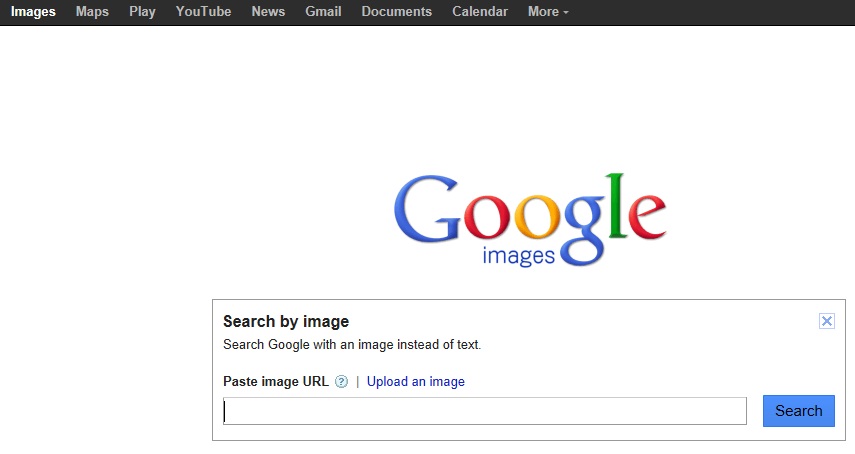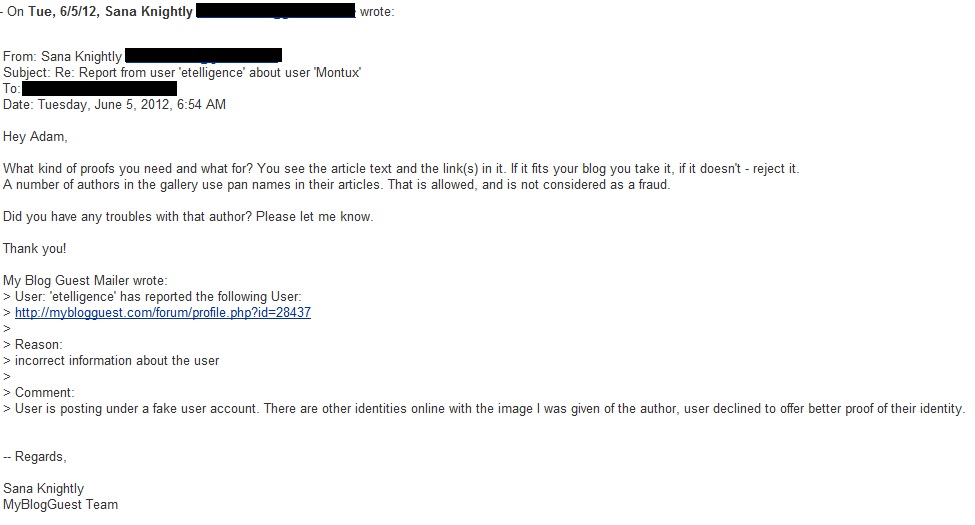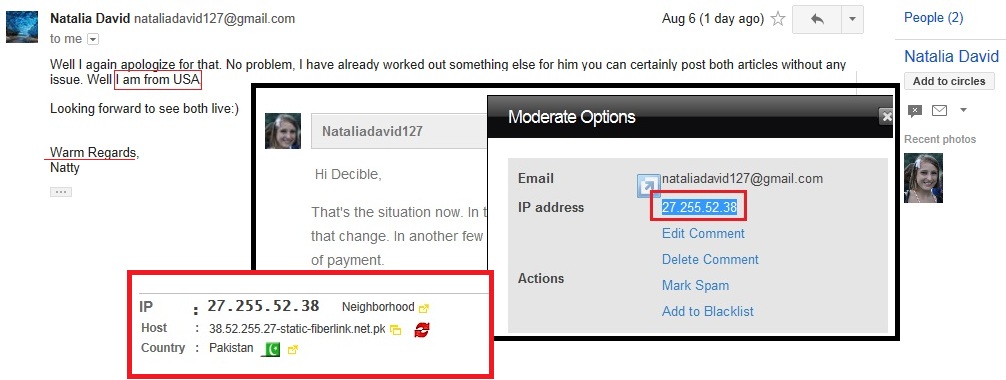 With Google’s latest algorithm updates, guest blogging has never been more popular as an SEO tactic. Traditionally the majority of guest bloggers were readers who had some experience in a given niche and were looking for an opportunity to expand their reach. Now there are thousands of SEOs outsourcing blog posts to countries were writing is cheap (but grammar is also terrible), and adding backlinks to the content to fulfill an order for a client. Writing hundreds of short blog posts every week can be a relatively high paying enterprise for a young adult in Mumbai.
With Google’s latest algorithm updates, guest blogging has never been more popular as an SEO tactic. Traditionally the majority of guest bloggers were readers who had some experience in a given niche and were looking for an opportunity to expand their reach. Now there are thousands of SEOs outsourcing blog posts to countries were writing is cheap (but grammar is also terrible), and adding backlinks to the content to fulfill an order for a client. Writing hundreds of short blog posts every week can be a relatively high paying enterprise for a young adult in Mumbai.
Sometimes these guests will search your blog out for a topical backlink, and you’re guaranteed to find them if you sign up for a resource that connects guest bloggers with blogs such as My Blog Guest or Blogger Link Up. You could theoretically open a website and never write the first piece of content yourself; but be aware, when something seems too good to be true, it usually is.
You Were in Victoria’s Secret… but you’re a Guest Blogger Now? How Quaint!
When I first started Social Media Sun I often had times were guest posts dried up. I decided to try sourcing some guests from My Blog Guest to fill in when my friends and the professionals I had reach out to were not available. I noticed that some of the guest bloggers on the site were blatant in their deception. Blonde haired blue eyed “Journalism Majors” from “Hollywood” could barely string an English sentence together.
I thought it was humorous at first, and vowed that I would never let one someone pull one over on me. As our readers, you must trust this site for this relationship to work. If you cannot trust that the guests and I have experience in each given field, you’re not going to follow through with our suggestions and get the proof on your own. If you can’t trust us to be truthful about whom we are and what we have done, how can you trust us to teach you about it?
The Difference Between a Pen Name and Fraud
Before I go into the details of finding out whether or not a user is a fake, I’d first like to point a few things out.
- Pen names are often used to protect identity. I only consider a guest unethical if they submit a photo of someone else, or try to pass themselves off as someone else we may know. (i.e. Chris Brogan).
- In other countries, using an assumed identity (including picture) doesn’t seem to be as taboo.
- Even when a user is positively a fake, remember that these people are likely doing a job that they depend on for sustenance.
- Not all foreign Bloggers are Fake. Some are genius, (even some of the fake ones have a proficient grasp on their topics), like Rahul Makhija – I found him giving an American blogger tips on how to optimize language for foreign readers can understand better.
So if a guest uses a pen name that they have used their whole career, and they include a picture of themselves, they are not committing fraud. If a guest’s name is really Chris Brogan, but they do not look like the Chris Brogan from Human Business Works, they’re not committing fraud. If the user has created a fake social account with a fake name and picture, and uses the falsified identity to submit guest posts, then they are a fraud. Even though it may be their job, you should not allow another person’s unethical behavior to compromise your integrity.
Ask for More Information
When submitting to Social Media Sun, we ask for a link to your website and your Twitter account. Most of the time these sites will have other links to your Facebook page, Google profile, and we can eventually piece together your whole social graph from those first links. When a guest has social media accounts that pre-date their writing career, you can assume that they are legit. If the guest has social profiles across several networks, and all of them are active on a daily basis (and the user clearly has close connections), then they are probably legit. If you cannot satisfy your doubts, by all means ask the guest for links to their other social media profiles. Someone posting on our blog should definitely have a few of those.
Some good indications of authenticity to look for:
- Multiple photos of the user in question
- Family members linked to their profile
- The ratio of friends who are from the same region is high
- The type of content they share on their pages is relative and pertinent
- The timeframe between posts is recent and the account age is old
- Personal information that doesn’t seems contrived
Don’t Get Ahead of Yourself
Sometimes a guest keeps their online exposure to a minimum for privacy concerns. You should never accuse someone of being a fraud unless you have the proof to back it up – or are at least satisfied with the amount of circumstantial evidence you have found. I once accused a guest of being a fake, and it offended her a great deal. I later did a LinkedIn search and found her LinkedIn profile (which did not turn up in cursory searches), which displayed a second picture of her. After confronting her with my reasons, she supplied additional proof, accepted my sincere apology, and went on to be one of our best guests.
Google Image Search
Finding blatant fakes isn’t hard. You see them on Twitter all the time. It took about a month before I was infiltrated by a fraudulent user on My Blog Guest. If you cannot ease your doubts by investigating a user’s online social graph, use the picture they submitted to do a Google Image search.

Select Images at the top of the Google home page, and upload the user’s profile picture to find out the other occurences of that picture on the net. If you find multiple identities or just a bunch of topical guest posts, you’ve likely found a fraud.
A Google Image search will track down all the search results that include a particular image, and will also show other images that are visibly similar. You can browse the search results to try and find conflicting identities connected to the image. Unethical guest bloggers are fully aware of this however, so you’ll be lucky to find a simple answer here. I once disproved a blogger from My Blog Guest by finding their profile image on a social network for American transplants to Bollywood.
Sometimes your proof will not be as cut and dry. Always get as much information as you can before you confront the fraud. The last fraud I uncovered on My Blog Guest, I found a comment on another blog were the picture was used under another name. When I confronted the blogger with my find and let them know I would not post their submission, they were agitated; their response amounted to “You never said I couldn’t lie about my identity and had to use my own picture. It wasn’t in your requirements”, and they even left me a negative review restating most of that.
I thought that the network would like to know about a user who was defrauding other users, but when I contacted My Blog Guest, the support specialist was also a foreigner, and was equally perplexed about why I cared if someone used a false identity. I don’t know if I was more surprised that a foreigner was handling the customer support for a guest blogging platform or that overseas bloggers are completely fine with the practice of stealing someone’s photo and posting under an assumed identity.

This e-mail opened my eyes to the fact that other cultures have a totally different mindset in regards to electronic fraud than Americans. They see free content, but I see content that someone doesn’t want to claim.
I have since stressed the fact that Social Media Sun does not accept guest posts from users who do not have a photo of themselves, and post under anything other than their real name or an established pen name. This encounter brings me to another fraud blogger tell: their language will often give away their country of origin. Foreigners use English terms like “warm regards” in closing a letter, they make words like content and proof plural (“contents” and “proofs”), and there are a lot of phrases that they just cannot translate.
We Give Them the Option, Why Do They Persist?
I am upfront with users who I think may be using a fraudulent identity. I tell them “we gladly accept guest posts from Indian men. If you are an Indian man, submit under your real name. You do not have to use a white woman’s identity to get accepted on Social Media Sun, you just need to prove your authority in your content. I do not care how many syllables are in your name either”.
After telling a recent guest just that, and also the spiel about needing to trust our authors and not accepting articles from someone posting under a fraudulent identity, they still submitted and insisted that they were the person in the picture, and “from the USA”. I didn’t think someone from America would answer “USA” when I asked where they were from (I expected Scranton Pennsylvania, New York, Arizona, or a more specific location). I also noticed “warmest regards” in the closing. I did a cursory search of Google, and found another indicator: the guest had been an especially prevalent guest blogger over the last few months, with a Google search of her image turning up nothing but guest blog posts on technology blogs, and a search of her name turning up the same. She was purported to be an SEO contractor however, so that wouldn’t necessarily be out of the normal.

The photo used by Natalia cannot be found online, so it is difficult to trace the picture back to its original source, or prove that it isn’t a photo of the guest. I could however get the guest to tie it in with another lie, and then obtain solid proof – that the guest was from Pakistan, and not from The USA like they originally stated.
Still, I had no good reason to suspect a fraud had infiltrated the site. I browsed Google, I searched social platforms, I checked the information they gave me, and I went ahead with posting their article. Never show your hand when you’re dealing with a suspected fraud. Your very last resort is to make them confirm that they’re lying to you. I could have asked more specific questions about the guest’s location, or about some other facts that a foreigner probably wouldn’t be able to reconcile on Wikipedia. Instead, I asked the suspected fraud to answer the comments on their post after it was up. They agreed, and I wasn’t too shocked to find out that they hailed from Pakistan when I ran the IP later that day. Their article needed heavy revision for grammar, but overall was informative and interesting. I plan on confronting this guest with this expose, and offering to let them submit their real identity – but they’ll need to make a convincing case to make me believe it.
It’s Not Just My Problem
These are not one time occurrences. Foreigners must think that using a female identity increases the chances that they will have their articles accepted. I was even more shocked to find that several fraudulent guests have posts up on several other blogs, including some that I always considered to be reputable. Here are a few links to ‘Natalia David’s’ latest work
I wasn’t surprised that some of the same blogs (including Business 2 Community) featured the same fraud I caught at My Blog Guest, and a few other frauds I had discovered while using guest blogging platforms.
So what’s a Blog to Do?
The only way to be totally sure of the author’s identity is to write it yourself. I would suggest staying away from guest blogging platforms and guests who work for SEO companies if you aren’t confident in your sleuthing ability. If you’re going to allow guests on your blog, you may even just want to offer them the ability to post anonymously.
The best way to get proof of someone’s identity online if you’re suspicious is to ask for a fresh photo of the person holding a dated message written out on a sheet of paper. Facebook used to offer this as one of the ways to reclaim your account if it was hacked. Always remember, you’re on the Internet too, and other users might not understand why you’re asking so many personal questions and demanding weird pictures. With the sheer number of guests looking for a place to do a blog post, it’s not worth risking your integrity for a 500 word article you’ll need to thoroughly edit anyway.
Has fraud been a problem for you before? Do you think I’m overreacting when I deny guests the privilege of posting because I cannot validate their identity? If there are any foreign guest bloggers reading, how can your counterparts think it is okay to use someone else’s photo online? Share your thoughts in the comments below.
- Blogging Isn’t a Rocket, It’s More Like a Roller Coaster - August 19, 2025
- Value vs. Expectations: The Fight for Startup Survival - July 31, 2025
- The Evolution of Marketing: From Catalogs to Cat Blogs - November 8, 2022
- How to Make a Tweet This Link - February 5, 2022
- Dramatically Improve Marketing Results with Advanced Analytics - September 20, 2021
- The Next Chapter for Social Media Sun - June 4, 2013
- Optimizing Your FAQ to Maximize ROI - December 5, 2012
- Weapons of Influence and Klout’s Role in Marketing - November 17, 2012

If a person has relevant content and the website they link to isn’t pure crap and it requires minimal editing, I allow it. I don’t require pictures or even last names. If the content checks out, it gets a pass. If not, I reject it. If the link seems to not go with the post, I reject it. I try to be choosy in who I will pick, but I don’t make them jump through hoops. Some of my best guest posts have been under one name people marketing something different, but the content was awesome.
For most guests it’s a matter of filling out a short form with your name, e-mail, link to website, Twitter ID, short bio and a picture (All of this is used in the guest’s profile at the bottom of their submission. We ask for pictures to keep the aesthetic of the blog consistent. Most legitimate sought after bloggers in our niche will prefer or even expect a photo. It helps readers connect with who wrote the guest pieces). That’s usually enough to know that a person is legitimate.
If I suspect that a guest is being dishonest to obtain a backlink, I feel like it’s my duty to investigate it. Ultimately what goes on SMS is endorsed by our brand, and fraud is antithetical to what we are trying to do here. I feel like I shouldn’t even have to worry about it- we give guests more than enough chance to use their real identity or pull their submission. The pictures add another dimension to it, and bloggers who write about digital marketing are subjected to readers who question their integrity and experience to begin with. Thanks for stopping by Amber, if you submitted a guest post, we may put you through without a full government background check!
I spoke with a foreign guest who posted Friday here, and she gave me some great insight – as well as a better idea to get proof. Skype them. If a user will answer your Skype call, you can get valid confirmation that the user is in fact who they say they are.
As for why a foreigner would lie about their identity: in the foreign SEO industry, managers often ask Indian writers and writers from muslim countries to commit the fraud. Websites are more likely to turn down a post from someone with a last name that is difficult to pronounce. I understand changing a long name for branding purposes (I personally wouldn’t because I have pride in my family name). I don’t understand why they would use a picture that they stole from another network.
high quality post about technology field. i like it